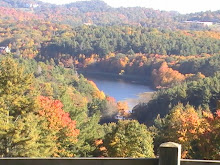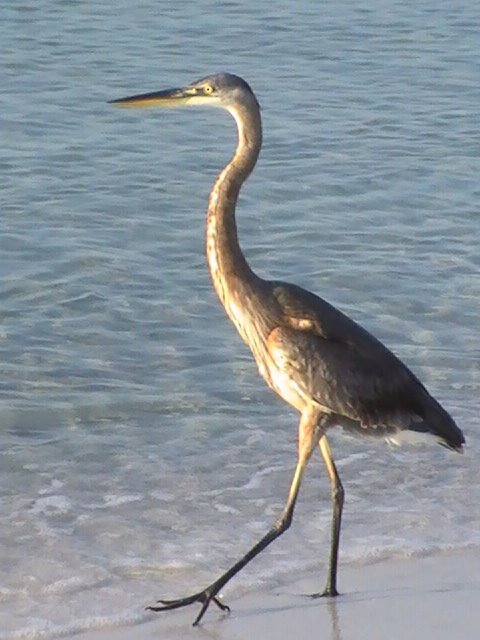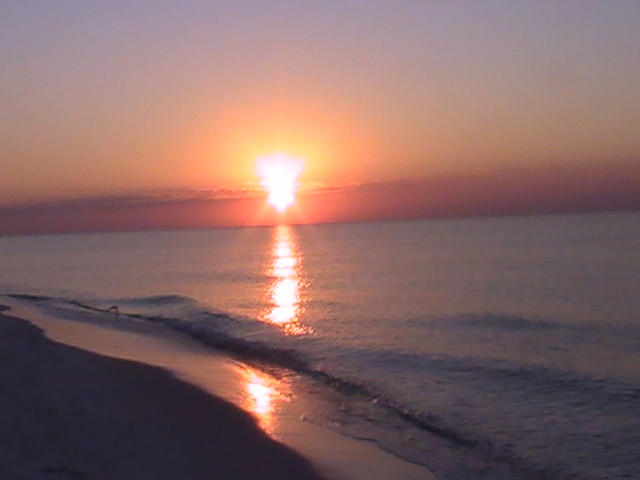Happy 10th Anniversary!
On Mar.13 Emerald CoastKeeper will be celebrating their 10th anniversary as a growing and successful environmental group.
Serving as the Northwest Fla. chapter of the Waterkeeper Alliance, Emerald CoastKeeper has overcome several challenges and completed many projects that have bettered the water quality around the area.
“There are many, many water quality issues in Northwest Fla.,” Taylor Kirschenfeld, the CoastKeeper of our area, said.
Kirschenfeld, along with many others, have been working hard to improve on these issues, improving the quality of life for those who live in and vacation in Fla.
Emerald CoastKeeper Inc. is an environmental organization whose members are citizens in the Northwest Florida Gulf Coast area, and who actively protect our waterways through education, outreach programs, and leading by example. When required, the CoastKeeper will pursue all legal remedies to protect our waterways.
Emerald CoastKeeper is part of the Waterkeeper Alliance, a group comprised of over 200 organizations throughout the world, whose philosophy is based on the notion that the protection and enjoyment of a community's natural resources requires the daily vigilance of its citizens.
“This is the philosophy that really drives the Waterkeeper Alliance,” Kirschenfeld said. “It really gets right to the heart of the issue.”
Emerald CoastKeeper has a lot to celebrate on their anniversary when it comes to accomplishments. They have participated in many projects and legal actions that have all bettered the quality of our water.
“Water quality is not only important to us that live in this area, but it is so important to tourism as well,” Kirschenfeld said.
Kirschenfeld believes that much of our water pollution is “coming form out of state.” They recently battled Jefferson Smurfit-Stone Corporation in Brewton, Ala. Smurfit Stone was putting 32 million gallons of discharge per day into the Conecuh River, which flows directly into the Escambia River.
Filing the lawsuit against Smurfit-Stone was a success and Emerald CoastKeeper got Ala. to change the permit so that Smurfit-Stone has to now meet Fla. water quality standards.
“That was a real success story,” Kirschenfeld said. “That was the first time anyone was able to get water quality standards changed across state lines.”
The Smurfit-Stone case was not the only one to have negative affects on the waterways. In Bayou Texar, there were creosote pilings left over from a CSX railroad trestle that Kirschenfeld said were “due for replacement.”
“Creosote is a very toxic substance that leaks for hundreds of years or more in the water,” Kirschenfeld said. “Creosote is a human carcinogen that is detrimental to water quality and the quality of life.”
The railroad agreed to replace the trestle with concrete, but refused to take the creosote pilings completely out of the water. Emerald CoastKeeper disputed, filed a lawsuit challenging the Department of Environmental Protection permit, and caused CSX to agree to pull the old creosote pilings out of the water.
These are only a few of the issues in which Emerald CoastKeeper has stepped up and improved the quality of the water in the area. They have also been involved with other activities such as Project Greenshores, City of Pensacola Tree Ordinance, and the Pensacola Bay Pitcher Plant Prairie.
With many more water quality issues to dispute, this is not likely to be Emerald CoastKeeper’s last anniversary. Although there are many more difficulties to face, Kirschenfeld seems positive about the future of our waterways.
“We will continue to keep tabs on our waterways,” Kirschenfeld said. “There’s already been a big improvement in the quality of the water in our area.”
Wednesday, February 4, 2009
Story #1 Student Environmental Action Society
So what are you doing this semester?
If you’re like any other college student on campus, you probably go to class, go back to your dorm room, and sit around trying to think of something productive to do.
This is true in many cases, except for one active group on campus, the Student Environmental Action Society. More commonly known as SEAS, this group is actively engaged in the betterment of the environment, including the UWF campus.
“I decided to sign up and see if I can do something to help out,” UWF senior Brian Collins said.
Collins is one of approximately 40 members who actively participate in meetings, projects, and clean-up crews throughout the year.
Cara Ambrust, the president of SEAS, headed the group’s first meeting of the semester on Jan. 23. She spoke about the several projects the group would be undertaking in spring 2009. Recycling on campus was at the top of that list.
“Our soul focus this semester is to get recycling to everyone on campus,” Ambrust said. “Getting recycling bins is our biggest issue.”
SEAS was the leader when it came to getting recycling onto the UWF campus. They have already placed a few bins around campus in select buildings. The bins you see around campus are expensive, and with limited funding it has been hard to get more.
“It cost about $300 a piece for the blue bins you see around campus,” said Ambrust. “There just isn’t a whole lot of money in the budget to put out recycling bins.”
SEAS believes that by finding a way to get bins in resident halls on campus, more people can become actively involved in recycling. They already have funding set aside to begin building their own recycling bins for the halls; it’s just a matter of getting cooperation from resident assistants in each hall.
“We have to talk to the RA’s of each hall first,” Lauren Quinn, Secretary of SEAS, said. “If we can get at least half of the RA’s to agree to take out recycling when it’s full, then the estimated start date to put bins in resident halls will be within a month.”
The recycling project is well underway, and seems to be of great importance to all of SEAS members.
“We picked that as our main goal because of the need for it,” SEAS member Shaun Cooley said.
SEAS soul focus may be recycling, but they also get involved in a myriad of other projects. They frequently work with the Department of Environmental Protection, or DEP, in projects as well.
“We go to the DEP for Project Green Shores, and sometimes work in the greenhouse,” said Quinn.
Project Green Shores is a program that includes restoring the coastline around Pensacola. SEAS has participated in several projects with them, including plating greenery along the bay front to help with erosion.
SEAS is also a front runner in helping with plans for the Best House. According to Ambrust the “funding is cut” for the house. SEAS is not sure why this happened and wants “attention brought back to that project.”
The Best house is another important project of the SEAS, and they are eager to see construction get underway. The house would benefit UWF in so many ways academically Ambrust said.
“Once it gets built, it will be the most self-sustainable house in the U.S.,” she said.
SEAS is continuing to look into the problem with funding for the Best House and hope for a positive outcome.
With all of the group’s hard work, SEAS members also like to take time to relax, learn about the environment, and just have some fun.
A pizza and movie night is scheduled for Feb. 4 at 6:00 p.m. for all current and prospective members. “Fern Gully” will be the featured movie of the night.
“It’s environmental, and it teaches about the harmful effects of deforestation,” said Ambrust.
More details about the pizza and movie night can be found on the SEAS website at http://uwf.edu/seas/.
So, if you’re looking for something to do, go check out SEAS. The group is always looking for new members to help out with projects.
“Were in the workings right now, but were growing,” Kristen Todd, a member, said.
SEAS members are working hard to get the group noticed, and are eager to get more students involved.
If you’re like any other college student on campus, you probably go to class, go back to your dorm room, and sit around trying to think of something productive to do.
This is true in many cases, except for one active group on campus, the Student Environmental Action Society. More commonly known as SEAS, this group is actively engaged in the betterment of the environment, including the UWF campus.
“I decided to sign up and see if I can do something to help out,” UWF senior Brian Collins said.
Collins is one of approximately 40 members who actively participate in meetings, projects, and clean-up crews throughout the year.
Cara Ambrust, the president of SEAS, headed the group’s first meeting of the semester on Jan. 23. She spoke about the several projects the group would be undertaking in spring 2009. Recycling on campus was at the top of that list.
“Our soul focus this semester is to get recycling to everyone on campus,” Ambrust said. “Getting recycling bins is our biggest issue.”
SEAS was the leader when it came to getting recycling onto the UWF campus. They have already placed a few bins around campus in select buildings. The bins you see around campus are expensive, and with limited funding it has been hard to get more.
“It cost about $300 a piece for the blue bins you see around campus,” said Ambrust. “There just isn’t a whole lot of money in the budget to put out recycling bins.”
SEAS believes that by finding a way to get bins in resident halls on campus, more people can become actively involved in recycling. They already have funding set aside to begin building their own recycling bins for the halls; it’s just a matter of getting cooperation from resident assistants in each hall.
“We have to talk to the RA’s of each hall first,” Lauren Quinn, Secretary of SEAS, said. “If we can get at least half of the RA’s to agree to take out recycling when it’s full, then the estimated start date to put bins in resident halls will be within a month.”
The recycling project is well underway, and seems to be of great importance to all of SEAS members.
“We picked that as our main goal because of the need for it,” SEAS member Shaun Cooley said.
SEAS soul focus may be recycling, but they also get involved in a myriad of other projects. They frequently work with the Department of Environmental Protection, or DEP, in projects as well.
“We go to the DEP for Project Green Shores, and sometimes work in the greenhouse,” said Quinn.
Project Green Shores is a program that includes restoring the coastline around Pensacola. SEAS has participated in several projects with them, including plating greenery along the bay front to help with erosion.
SEAS is also a front runner in helping with plans for the Best House. According to Ambrust the “funding is cut” for the house. SEAS is not sure why this happened and wants “attention brought back to that project.”
The Best house is another important project of the SEAS, and they are eager to see construction get underway. The house would benefit UWF in so many ways academically Ambrust said.
“Once it gets built, it will be the most self-sustainable house in the U.S.,” she said.
SEAS is continuing to look into the problem with funding for the Best House and hope for a positive outcome.
With all of the group’s hard work, SEAS members also like to take time to relax, learn about the environment, and just have some fun.
A pizza and movie night is scheduled for Feb. 4 at 6:00 p.m. for all current and prospective members. “Fern Gully” will be the featured movie of the night.
“It’s environmental, and it teaches about the harmful effects of deforestation,” said Ambrust.
More details about the pizza and movie night can be found on the SEAS website at http://uwf.edu/seas/.
So, if you’re looking for something to do, go check out SEAS. The group is always looking for new members to help out with projects.
“Were in the workings right now, but were growing,” Kristen Todd, a member, said.
SEAS members are working hard to get the group noticed, and are eager to get more students involved.
Subscribe to:
Comments (Atom)







